Melting Sea Ice Means Shortage of Bear Necessities
Researchers reveal as baseless the theory that polar bears can use hibernation techniques to survive without food as climate change reduces their summertime hunting habitat.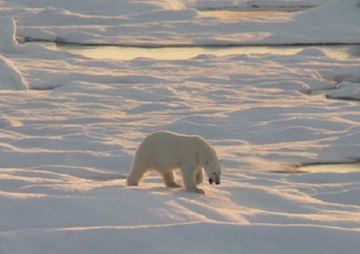 A polar bear searches for prey on the Arctic sea ice. (Pablo Clemente-Colon / NOAA via Wikimedia Commons)
A polar bear searches for prey on the Arctic sea ice. (Pablo Clemente-Colon / NOAA via Wikimedia Commons)
By Tim Radford, Climate News NetworkThis Creative Commons-licensed piece first appeared at Climate News Network.
LONDON — Global warming is likely to leave the polar bear high and dry and very hungry as increasing loss of sea ice reduces the hunting grounds of the Arctic’s top predator.
Researchers have established that while Ursus maritimus can survive for months without eating during winter hibernation, in the summertime it is not much better at going without food than any other mammal.
The polar bear is capable of shutting its own metabolism down to astonishingly low levels during hibernation and, until now, zoologists have surmised that the bear could minimise energy losses by entering a hibernation-like state when deprived of food.
But John Whiteman, a doctoral student in ecology, zoology and physiology at the University of Wyoming, and colleagues report in Science journal that that theory is wrong. Once they are up and hunting, bears need food.
Energy expenditure
“We report gradual, moderate declines in activity and body temperature of both shore and ice bears in summer, resembling energy expenditures typical of fasting, non-hibernating mammals,” they write.
As carbon dioxide levels in the atmosphere creep up, as a consequence of the human combustion of fossil fuels, so Arctic temperatures have on average risen.
The loss of sea ice in the Arctic has, over the last decade, happened even faster than climate scientists predicted, which creates problems for bears that need to hunt and gorge on high-calorie diets in preparation for the winter.
The polar bear hunts on the ice, and its preferred diet is the blubber-rich flesh of seals and small whales. On shore, it must forage for scraps, berries and small mammals while waiting for the seas to freeze again.
“Polar bears appear unable to meaningfully prolong their reliance on stored energy.”
But Arctic summers have stayed milder for longer, and the areas of summer sea ice have steadily dwindled. So the bears have spent increasing periods without their preferred diet.
The orthodoxy had been that bears, while waiting for the first freeze, had been able to enter a state called “walking hibernation”. Whiteman and his fellow researchers took a closer look.
With help from government agencies, a US coastguard icebreaker, helicopter pilots and a large number of other people, they captured two dozen polar bears, fitted satellite collars, and implanted little devices that recorded body temperature and tracked their movements on shore and on ice in the Beaufort Sea, north of Alaska and Canada, between 2008 and 2010.
Core temperature
They found that the bears could do something physiologically clever to keep warm while swimming — they could temporarily cool their outermost skin layers to insulate their inner selves and keep their core body temperatures at a healthy level, and one bear was reported to have survived a nine-day swim from shore to ice.
But they also found that the bears were not much better than other mammals at walking around on dry land, looking for food that wasn’t there.
“We found that polar bears appear unable to meaningfully prolong their reliance on stored energy, confirming their vulnerability to lost hunting opportunities on the sea ice — even as they surprised us by also exhibiting an unusual ability to minimise heat loss while swimming in Arctic waters,” Whiteman says.
The evidence, however, suggested that “walking hibernation” didn’t actually exist. The researchers conclude that the bears “are unlikely to avoid deleterious loss in body condition, and ultimately survival, that are expected with continuous ice loss and lengthening of the ice-melt period”.
Your support is crucial...As we navigate an uncertain 2025, with a new administration questioning press freedoms, the risks are clear: our ability to report freely is under threat.
Your tax-deductible donation enables us to dig deeper, delivering fearless investigative reporting and analysis that exposes the reality beneath the headlines — without compromise.
Now is the time to take action. Stand with our courageous journalists. Donate today to protect a free press, uphold democracy and uncover the stories that need to be told.

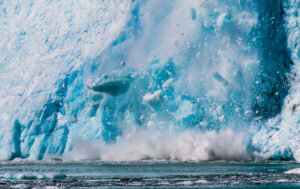
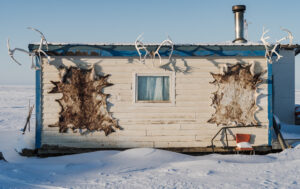
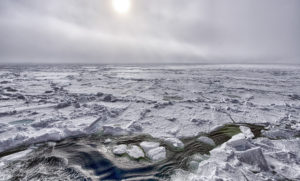
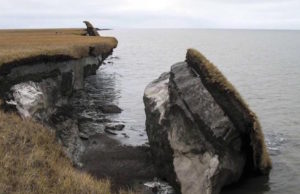
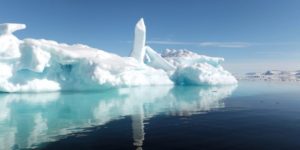
You need to be a supporter to comment.
There are currently no responses to this article.
Be the first to respond.